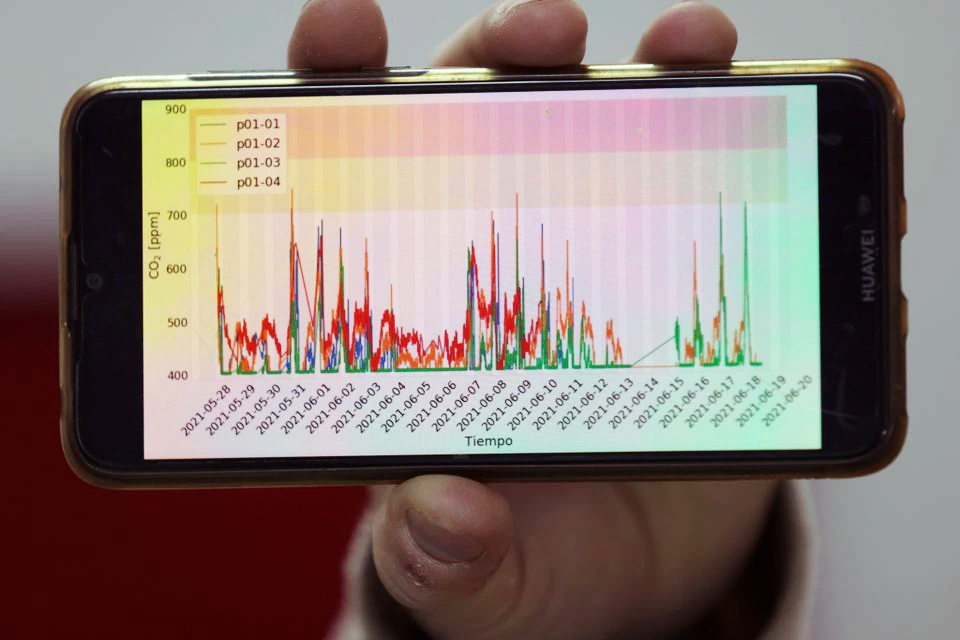SANTIAGO, (Reuters) – Chilean researchers have repurposed a carbon dioxide detector model to warn of the risk of contracting COVID-19 in enclosed spaces.
The prototype measures air pollution which, in a room with people, would include the coronavirus if anyone was infected since it is known to circulate via exhaled vapor.
The device, which is not yet for sale, uploads data to the cloud and issues an audio alert if ventilation is insufficient that could result in COVID-19 transmissions.
The monitor, developed by the University of Chile’s Center for Mathematical Modeling and Center of Excellence in Astrophysics and Tech-nologies Related, is already being tested in university campuses in the South American country.
“If you are in a place that does not have combustion, the only source of CO2 is people,” Ricardo Finger, an electrical engineer at the University of Chile, said in an interview.
“But if you measure the amounts of CO2 in the air, you can estimate how much air one person is breathing that has already been breathed by another.”
Carbon dioxide concentration, as well as temperature and humidity levels, are transmitted by radio signals to a control panel, which can monitor dozens of sensors at the same time.
“CO2 sensors have been around for a long time, but the difference is that they had not previously been considered to confront coronavirus contagion,” Finger said.
“The focus had been given mainly on surfaces, on contact, in washing hands and it had been ruled out that contagion could occur purely by air.”
As Chile enters the southern hemisphere winter, health authorities are racing with vaccinations to avoid a spike in contagions as people spend more time indoors with windows and doors closed.










